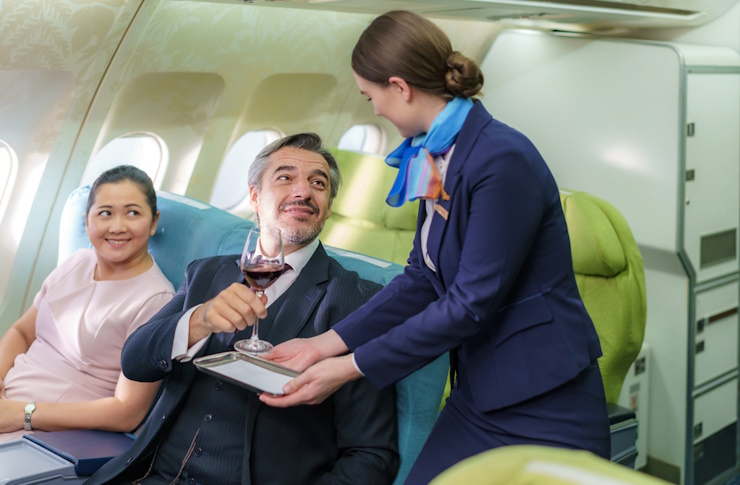Flight Attendant Jobs: Private Jet, Luxury & Aviation Careers
Working as a flight attendant can mean very different things depending on the aviation niche you choose. This article offers practical, general guidance about flight attendant jobs across commercial airlines and private jet operations, clarifying how luxury service roles differ and what you should prepare for. This is career information only—not a list of current openings—and readers should verify opportunities on official employer career pages or verified recruiters.

What does a flight attendant do in aviation?
A flight attendant’s core responsibilities center on passenger safety and comfort. In a commercial aviation setting this includes safety demonstrations, emergency procedures, cabin checks, medical first aid, and managing inflight service. Duties vary by carrier size and route length: long-haul flights often involve rotating rest schedules and international protocols, while regional flights focus on rapid turnarounds and multitasking. Understanding regulatory basics from aviation authorities and showing consistent professionalism are essential to perform safely and to progress within the industry.
How do private jet roles differ from airlines?
Private jet positions typically serve smaller crews and fewer passengers but demand higher personalization and discretion. Private jet flight attendants must be adept at anticipating client preferences, adapting menus, handling bespoke itineraries, and maintaining confidentiality. Schedules are often more irregular, with last-minute trips and varied destinations. Training emphasizes high-end service standards, fine dining knowledge, and the ability to manage VIP expectations. Compared with airlines, private aviation can offer more varied responsibilities but may also require greater flexibility and longer on-call periods.
What skills suit a luxury flight attendant?
Luxury service roles prioritize refined hospitality skills alongside aviation basics. Key skills include polished communication, multilingual ability, table service and wine knowledge, and meticulous attention to detail. Emotional intelligence and cultural sensitivity are essential when serving diverse, high-net-worth clients. Technical competencies—such as safety procedures, first aid certification, and familiarity with cabin systems—remain mandatory. Employers in luxury aviation value previous upscale hospitality, private service experience, or dedicated certifications that combine safety proficiency with premium service training.
How to prepare for a flight attendant career?
Preparation blends formal qualifications with targeted soft skills. Most commercial carriers require minimum age, education, and certification such as basic safety (e.g., CPR and first aid) and completion of carrier-specific training academies. For private aviation, seek courses focused on VIP service and regulatory differences, and consider networking through aviation events or professional associations. Build a clear résumé that highlights customer service, languages, certifications, and adaptability. Practice interview scenarios and scenario-based assessments used by many employers to evaluate calm decision-making under pressure.
Where to look and how to apply responsibly?
Search strategies should prioritize verified employer channels and reputable training providers. Check airline and private aviation company career pages, established staffing agencies specializing in cabin crew roles, and professional associations. Use LinkedIn and aviation-focused networks for professional connections, but treat unsolicited offers with caution. Avoid services that promise guaranteed placement for large upfront fees; prefer organizations with clear accreditation and transparent processes. Remember: this article provides general career guidance, not active job listings—verify current vacancies directly with employers or licensed recruiters.
| Provider Name | Services Offered | Key Features/Benefits |
|---|---|---|
| NetJets | Fractional ownership and private jet travel | Extensive global fleet, structured crew training, reputation for professional standards |
| VistaJet | Global private jet charter and subscription | Focus on uniform service quality worldwide, tailored client experiences |
| Wheels Up | Membership-based private aviation services | Diverse fleet options, emphasis on member benefits and regional accessibility |
| Jet Linx | Local private aviation and jet management | Personalized pilot and cabin staffing, localized service model |
| XO | On-demand charters and membership programs | App-driven bookings, mix of empty-leg and charter availability |
Conclusion
A flight attendant career can range from structured airline schedules to bespoke private jet service, each with distinct expectations for safety, customer care, and professionalism. Pursue the path that matches your temperament—whether you prefer systematic airline operations or personalized luxury service—by gaining the required certifications, honing hospitality skills, and applying through verified, reputable channels. This overview is intended as general career guidance and does not constitute active job postings; for current opportunities consult official employer career pages and licensed recruiters.






